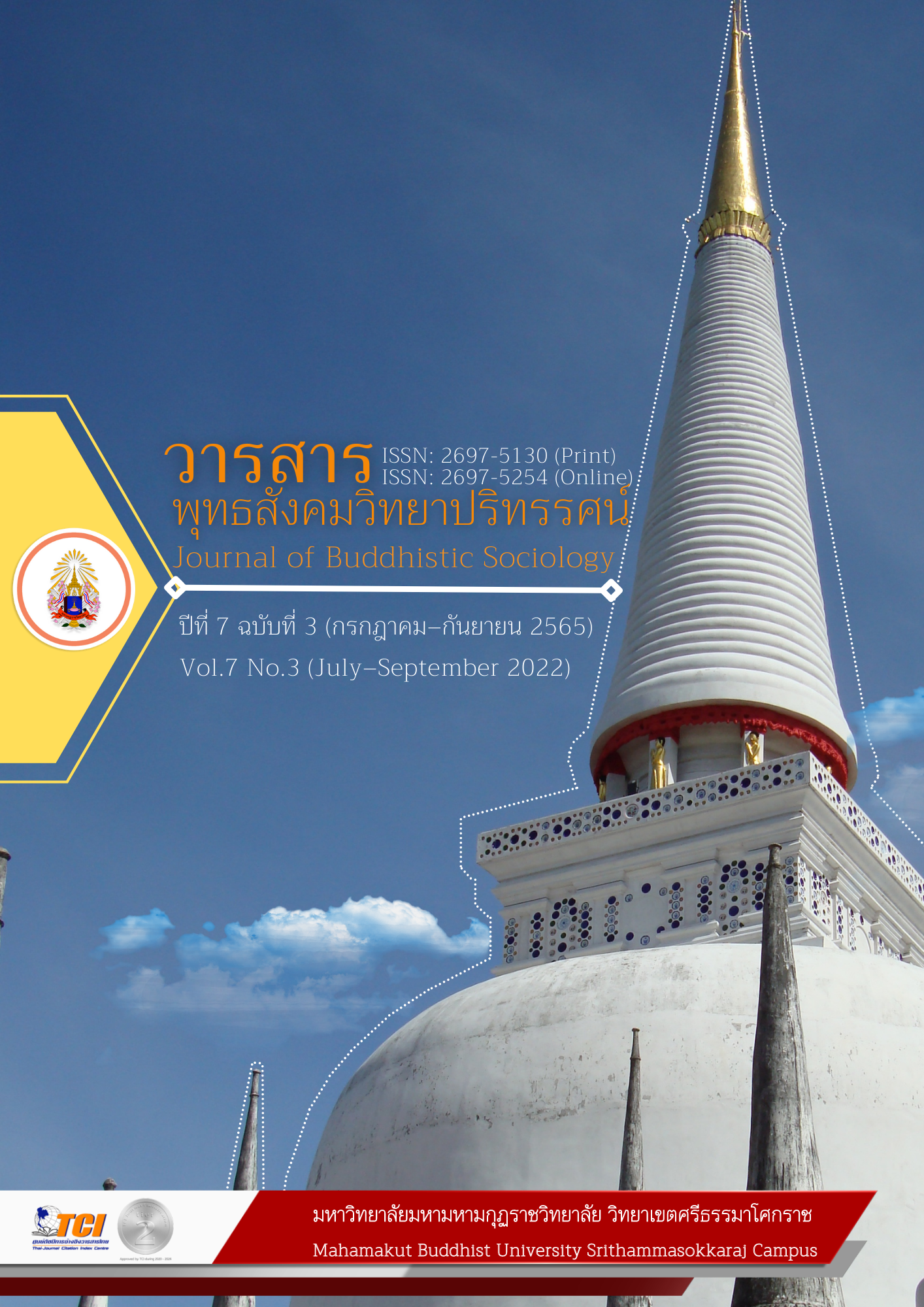POLITICAL DEVELOPMENT MODEL TO CREATE FAIRNESS AND REDUCE SOCIAL INEQUALITY IN LOEI PROVINCE
Main Article Content
Abstract
This research aimed to 1) analyze the general conditions and problems, obstacles, and social inequality in Loei Province, 2) study the process of promoting the solutions to social inequality in Loei Province, and 3) present the management model and solutions to social inequality in Loei Province by integrating the Buddhist principles. This research employed mixed methods between qualitative and quantitative research. For qualitative research, the sample was 17 key informants selected by purposive sampling. For quantitative research, the sample was selected by random sampling. They were people from 14 districts in Loei Province who had the right to elect members of the House of Representatives.
The research showed that;
1. An analysis of the general conditions and problems, obstacles, and social inequality in Loei Province: Loei is a border province located far away, leading to the difficulty in development. Most people still lack a proper understanding of the political system and prefer the patronage system.
2. Development of political knowledge and understanding to create fairness and reduce inequality in Loei Province: political participation must be created for the people for political development. There also must be the creation of social justice for people with equality. People must be allowed to access welfare and education to reduce social inequality. Overall, justice and political opportunity were high.
3. Model development presentation of political knowledge and understanding to create fairness and reduce inequality by integrating the Buddhist principles: Saranee Dharma 6 was applied to the political development to create fairness and reduce social inequality in Loei Province. Overall, the application of Saranee Dharma 6 was at a high level.
Article Details

This work is licensed under a Creative Commons Attribution-NonCommercial-NoDerivatives 4.0 International License.
References
พระธนบูลย์ สุวณฺโณ (หันมนตรี). (2563). การนำหลักสาราณียธรรมมาส่งเสริมการอยู่ร่วมกันของชุมชนทุ่งละอองตำบลบางวัน อำเภอคุระบุรี จังหวัดพังงา. วารสารมหาจุฬานาครทรรศน์, 7(1), 57-68.
ยงยุทธ บุราสิทธิ์. (2556). ชุมชนคนอีสานกับปัญหาความเหลื่อมล้ำทางสังคมในกรุงเทพมหานคร : กรณีศึกษาชุมชนแห่งหนึ่งในกรุงเทพมหานคร. วารสารภาษาและวัฒนธรรม, 32(1), 67-91.
ศิริพงษ์ อรุณเดชาชัย และคณะ. (2560). สถานีสาราณียธรรม : พื้นที่บ่มเพาะความรู้ชุมชน. วารสารศึกษาศาสตร์ มหาวิทยาลัยมหาสารคาม, 11(1), 183-195.
สำนักงานคณะกรรมการพัฒนาการเศรษฐกิจและสังคมแห่งชาติ. (2561). รายงานสถานการณ์ความยากจนและความเหลื่อมล้ำด้านรายได้ในระดับภาคของประเทศ. กรุงเทพมหานคร: สำนักงานสภาพัฒนาการเศรษฐกิจและสังคมแห่งชาติ.
สิริยา รัตนช่วย และโกวิทย์ พวงงาม. (2558). แนวทางการสร้างความเป็นธรรมในการเข้าถึงและรับประโยชน์จากแหล่งเงินทุนในชุมชนและปัจจัยที่จะนำไปสู่การพัฒนาคุณภาพชีวิตของผู้ด้อยโอกาสโดยเลือกเอาอำเภอชะอวด จังหวัดนครศรีธรรมราช. วารสารการเมืองการปกครอง: การจัดการบ้านเมืองที่ดี/นโยบาย (Good Governance / Policy), 5(2), 130-143.
สุปรียา หวังพัชรพล และคณะ. (2560). ชุดโครงการวิจัยความเหลื่อมล้ำและคนจนเมือง. ใน รายงานการวิจัย. สํานักงานกองทุนสนับสนุนการวิจัย (สกว.) ฝ่ายวิจัยเพื่อท้องถิ่น และสถาบันพัฒนาองค์กรชุมชน (พช.).
อรรฆพร ก๊กคำพล และคณะ. (2563). ปัจจัยที่มีอิทธิพลต่อความเหลื่อมล้ำทางสังคมในพื้นที่การ ท่องเที่ยวโดยชุมชน ประเทศไทย. มนุษยศาสตร์สาร, 21(3), 214-236.
อารยะ ปรีชาเมตตา และคณะ. (2555). พลวัตการเปลี่ยนแปลงเศรษฐกิจไทยในเชิงพื้นที่กับปัญหาความเหลื่อมล้ำ. ใน รายงานการวิจัย. สำนักงานกองทุนสนับสนุนการวิจัย.
อำไพ แสนหมื่น. (2556). โครงการวิจัยเพื่อการพัฒนาและการแก้ไขความเหลื่อมล้ำทางสังคม กรณีชุมชนคาลเท็กซ์. วารสารวิจัยสังคม จุฬาลงกรณ์มหาวิทยาลัย, 36(1), 29-48.
Cingranelli, D. L. (1981). Race, politics and elites: Testing alternative models of municipal service distribution. American Journal of Political Science, 25(4), 664-692.
Suwanmolee, S. (2017). Inequality Pathway of Rawai Sea Gypsies in Phuket Province (in Thai). Walailak Journal of Social Sciences, 10(1), 89-135.


